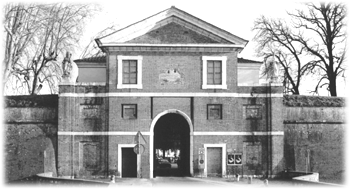 "The
world needs stories. This need never been so strong as today,
especially because, in an era of enormous changes, some of
which may be considered achievements, while of others we
merely suffer the consequences, our stories must be able to
tell of those things we no longer want, and if possible define
those which we do want for our children, in an acceptable
hypothesis of the future" "The
world needs stories. This need never been so strong as today,
especially because, in an era of enormous changes, some of
which may be considered achievements, while of others we
merely suffer the consequences, our stories must be able to
tell of those things we no longer want, and if possible define
those which we do want for our children, in an acceptable
hypothesis of the future"

Sagarana
is the title of Joćo Guimarćes Rosa's first book, a
pioneer of fantastical realism in Latin America. Sagarana is a
word invented by Guimarćes Rosa, a great inventor of neologisms.
The word is made up of two parts each of which has a different
etymological origin: "saga", which in Portuguese has the
same meaning as in English, and stands for a story which spans
across many epochs and generations, and "rana", a
collective suffix taken from the native Brazilian dialect Tupi.
Sagarana is, therefore, the "multiple story", the "never-ending
saga": perhaps it is the imaginary union of all the stories
ever to be created by the man during his long exile upon this
planet.
Sagarana's story
begins here.
The Sagarana
workshop: tools for communication
Ideas, even the
best ones the inspiration for a story, for a film script or a
radio play fail more often due to the technical unskilfullness in
putting them in writing than for the fact that they are inadequate.
Sagarana is conceived as an old workshop where all its students will
be able to find the tools they need in order to organize their
creative ideas so as to obtain a precise narrative product from a
simple cue or inspiration.
What we will learn, what we
will do
In the
workshops we will learn to read poetry by going into the workshop of
lexical invention and mastering the basic forms of composition, we
will enter the world of the theatre in order to develop a thought that
will be constantly visual. We will learn how to read a literary text
so as to learn to read our own selves, others and reality. We will
take the text to pieces in order to study its structure and technique.
We will compare the fundamental aspects of narrative art with the
results of our exercises until we reduce the difference between the
idea and the final written product, thus obtaining a full awareness of
our own writing.
Together we
will learn to understand what makes a certain text important, and why
others are not. We will study the great authors by analyzing their
narrative structure and their literary greatness. We will study myths,
archetypes and cosmogonies, the history of the classical and modern
thought, screen language, narrative structure and history of the
theatre. We will look into the psychology of creativity and literary
ethics.
We will learn
how to organize a text and what is the writer's role, how to write a
play or a novel and, contemporarily, we will discover that writing
means facing our own conceptual universe and our personal vision of
the world in one single indissoluble plan of life. We will also learn
how to work together and understand that comparison and confrontation
with others are an opportunity and not a threat.
Talent's embankments
With our work,
our study and the workshops we will build solid embankments, capable
of containing and strengthening individual talent without the risk of
dissipating it in mistaken choices. We will practice steering our
works in the right direction so as to make them become texts of value
and not just the fruit of a vague initial "inspiration".
The writer
will be able to choose the style, tense, rhythm, color and trend of
the text by organizing the techniques and instruments at his disposal,
just like a musician.
Those stories
which we have always felt were important but which we have not been
capable of telling will find their dimension: novel or play, short
story or film script, thus giving rise to that "great pleasure
in writing" which the Italian poet Leopardi puts as the top
of list of mankind's pleasures, and which Sagarana we will teach you
to achieve.
Note: the pictures on
this site were taken by Enzo Cei
|
 "The
world needs stories. This need never been so strong as today,
especially because, in an era of enormous changes, some of
which may be considered achievements, while of others we
merely suffer the consequences, our stories must be able to
tell of those things we no longer want, and if possible define
those which we do want for our children, in an acceptable
hypothesis of the future"
"The
world needs stories. This need never been so strong as today,
especially because, in an era of enormous changes, some of
which may be considered achievements, while of others we
merely suffer the consequences, our stories must be able to
tell of those things we no longer want, and if possible define
those which we do want for our children, in an acceptable
hypothesis of the future"